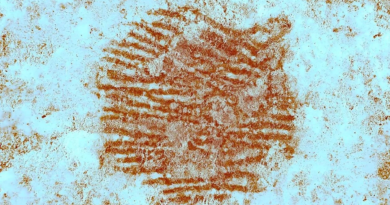10 INVENTIONS BY INDIANS THAT CHANGED THE WORLD
India is a land of great thinkers, scientists, and inventors. From ancient times to modern days, Indians have contributed knowledge, ideas, and innovations that changed the world. Many things that we use every day were first created or discovered in India. These inventions have shaped science, mathematics, health, and even daily life. Let us look at ten such inventions by Indians that made a big difference globally.
1. Zero (0)
One of the greatest contributions from India is the concept of zero. The Indian mathematician Aryabhata, and later Brahmagupta, explained the use of zero in mathematics around the 5th century. Before this, numbers were incomplete because people did not have a way to represent “nothing.” Zero made advanced mathematics, algebra, and modern computers possible. Without zero, there would be no digital world today.
2. The Decimal System
Along with zero, Indians also developed the decimal system, which is the number system based on 10. This system, introduced around the 6th century, made calculations simple and accurate. Today, the decimal system is the foundation of mathematics, science, banking, and engineering worldwide.
3. Ayurveda
Ayurveda, the traditional Indian system of medicine, is more than 3,000 years old. Ancient scholars like Charaka and Sushruta wrote detailed texts on health, surgery, and natural remedies. Ayurveda introduced ideas like balance of body, mind, and spirit. Many herbal medicines, yoga, and wellness treatments used globally today have their roots in Ayurveda.
4. Yoga
Yoga is another gift from India to the world. It started thousands of years ago as a spiritual and physical practice. Yoga combines breathing, meditation, and body postures to improve health and peace of mind. Today, millions of people across the globe practice yoga daily for fitness, stress relief, and inner strength. The United Nations even celebrates International Yoga Day on June 21 every year.
5. Chess
The game of chess, originally called Chaturanga, was invented in India around the 6th century. It was later spread to Persia and Europe, where it evolved into modern chess. Chess is not just a game but also a tool to sharpen the mind, improve strategy, and develop problem-solving skills. Today, it is played worldwide and India continues to produce world-class champions like Viswanathan Anand.
6. Buttons
Yes, even the small button that we use on our shirts and clothes was first invented in India. Archaeologists discovered buttons made from seashells in the Indus Valley Civilization, dating back to 2000 BCE. They were first used for decoration and later for fastening clothes. Buttons may look simple, but they are an important part of modern fashion.
7. Cataract Surgery
Indian physician Sushruta, known as the “Father of Surgery,” performed the first cataract surgery in the 6th century BCE. He used a curved needle to remove the cataract from the eye. His medical text Sushruta Samhita describes more than 300 surgical procedures and 120 surgical instruments. Modern eye surgery techniques still respect his pioneering work.
8. Snakes and Ladders
The popular board game “Snakes and Ladders” was invented in India in the 13th century. It was originally called Moksha Patam and was designed to teach moral lessons. The ladders represented virtues like honesty, while the snakes represented vices like greed. Over time, the game became a fun activity for children around the world.
9. Wireless Communication (by Jagadish Chandra Bose)
Before Guglielmo Marconi, the Indian scientist Jagadish Chandra Bose demonstrated the use of radio waves for wireless communication in 1895. He showed that electromagnetic waves could travel without wires. His research laid the foundation for modern wireless technology, which powers mobile phones, Wi-Fi, and radio.
10. USB Technology (Ajay Bhatt)
In modern times, Indian-American computer scientist Ajay Bhatt invented the Universal Serial Bus (USB) in the 1990s. The USB changed the way we connect devices like keyboards, flash drives, and printers to computers. Today, USB ports are found in almost every gadget, making data transfer and charging extremely easy.




